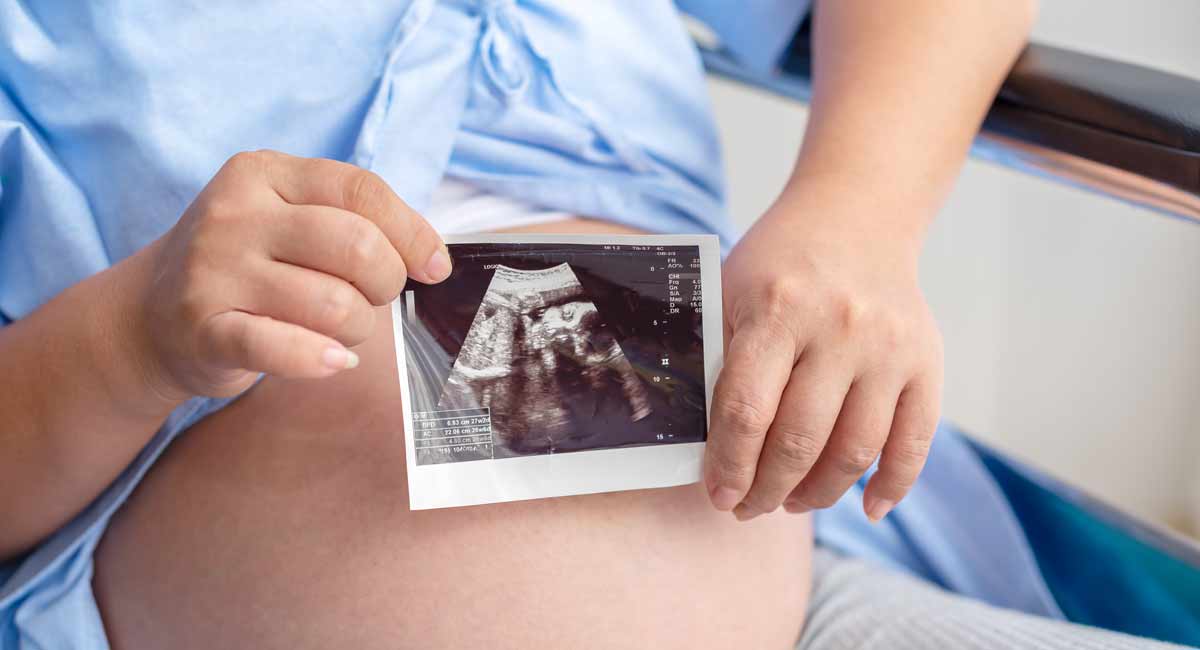A 2018 Pregnancy Center Study from the Charlotte Lozier Institute reveals that pro-life pregnancy resource centers have had a major impact on the lives of women, children, and men. Reviewing data from 2,600 of the 2,752 pregnancy center locations nationwide, the report found that these centers served nearly 2 million people in 2017 alone.
Free Services
The 2 million clients of pro-life pregnancy centers in 2017 received care that included free services with estimated savings to the communities of $161 million annually. Those free services included 679,600 pregnancy tests and 400,100 free ultrasounds by credentialed nurse sonographers and registered diagnostic medical sonographers. 100 mobile units offered ultrasounds in addition to brick and mortar facilities. Those ultrasounds likely helped many women and couples choose life for their children. According to the National Institute of Family and Life Advocates (NIFLA), 78 percent of women considering abortion choose life when they see an ultrasound of their babies.
In addition to ultrasounds, free services offered by pregnancy centers also include material assistance including baby gear and clothing. 96 percent of the centers involved in the study offered material assistance free of charge and most in conjunction with education services. Parenting and prenatal classes were available at 87 percent of the pregnancy centers, with 300,000 parents taking part.
The report also found that one in four pregnancy centers offered STD testing and one in five offered STD treatment. Options consultation, sexual risk avoidance education, community referrals, and medical services were also offered free of charge.
Post-abortion support
While pregnancy resource centers are run by pro-life organizations including Heartbeat International and CareNet, women and couples who access their free services sometimes do choose abortion. Despite being told the truth about the risks of abortion, many mothers still think that it is the only option for them. Some of them — as well as some of the fathers — will then turn to pregnancy centers for post-abortion support due to grief and regret.
According to the Charlotte Lozier Institute, three out of four centers offer post-abortion support and recovery and 24,000 clients visited centers to help them deal with the trauma that resulted from the abortion. Post-abortion syndrome can include depression and guilt, as well as an increased risk of drug and alcohol use and an increased risk of suicide. For women and men who experience those symptoms, pregnancy centers are available to help.
Staffed by volunteers
Unlike the abortion industry, pregnancy centers are staffed primarily by volunteers. Nine out of 10 people working at a pregnancy center are actually volunteers. The report found that 67,400 volunteers serve pregnancy centers, including about 7,500 medical professionals such as physicians, nurses, sonographers, and nurse-midwives. In addition, 59,000 non-medical volunteers fill other roles at the centers. This is vital to the success of pregnancy centers and their ability to help women and children.
Locally funded
Volunteers are so important to pregnancy centers because, as the report found, 90 percent of the total funding for the centers is raised locally at the community level. 86 percent of pregnancy centers receive no public funding whatsoever. Those that do receive public funding are required to use it for services such as sexual risk avoidance education — with 1.1 million students attending these presentations — and STD testing and treatment.
WATCH: Women tell the truth about pregnancy centers — and it’s not what the media says
Ethical code
Pregnancy centers affiliated with networks such as CareNet and Heartbeat International are required to stick by a national ethical code that calls for truthfulness in all communications including advertising, kindness and compassion towards clients, client confidentiality, and compliance with legal requirements. The code, “Our Commitment of Care and Competence,” also requires that all provided medical services be supervised and directed by a licensed physician in accordance with medical standards. Breaking this code could lead to disaffiliation.
“Pregnancy centers knit together and unconditional love approach which esteems the women, youth, men, and unborn children they serve and seeks to provide them with the highest level of respect and care possible,” reads the report. “This approach recognizes each individual for the unique person of invaluable worth she is.”
Client satisfaction
While abortion groups like NARAL Pro-Choice America are working hard to try and shut down pregnancy centers, labeling them as “fake clinics,” pregnancy center clients want other women to know about the services available to them that abortion facilities don’t offer. Exit surveys from the pregnancy centers show high levels of client satisfaction.
“I was never judged for my past. I was only encouraged,” said one pregnancy center client.
“I feel like every woman who walks through those doors gets the same treatment – open, loving, very warm – especially if you don’t have any other supports,” said another client. “You just have to be willing to walk through those doors.”
Overall, the report from the Charlotte Lozier Institute found the pregnancy centers promote better health outcomes for women and families. “The benefits to women’s health are considerable,” states the report. Those benefits include avoiding the mental and emotional health impacts of abortion including depression, substance abuse, and suicide, in addition to lower incidences of preterm birth and breast cancer.
In addition to saving communities money and improving the health of women (thanks to the work of pregnancy help centers), the report states that the most recent data from the Guttmacher Institute on abortion shows that the rate of abortions in the United States is down to the lowest on record.
“Like” Live Action News on Facebook for more pro-life news and commentary!







